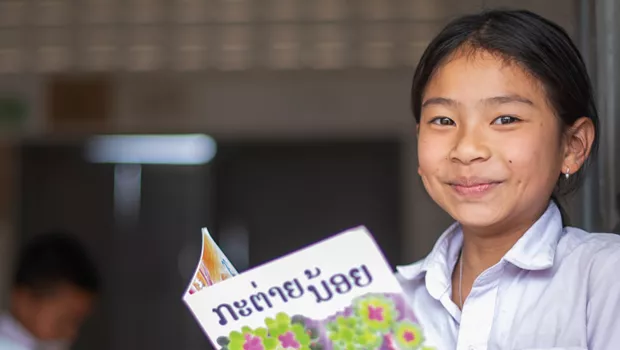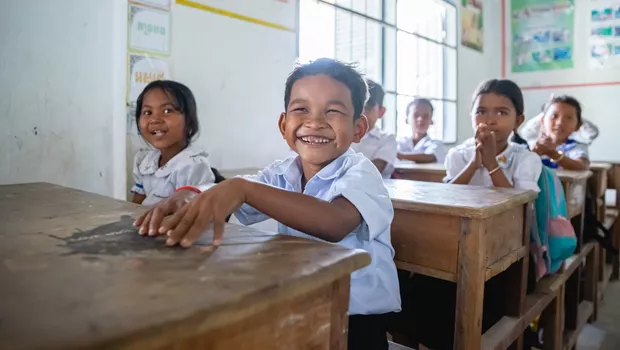At Room to Read we are passionate about testing our assumptions. We do not want to take for granted that what we’re doing is valuable and effective, we want to be able to prove it and improve it.
When it comes to our school libraries, it can be easily supposed that our libraries are enhancing children’s reading habits, but we wanted to test this assumption and find out more.
Does having a library help make a child more likely to read for pleasure at school? And what about at home? Does having a library impact a child’s attitude towards reading? These are some of the questions we wanted to answer.
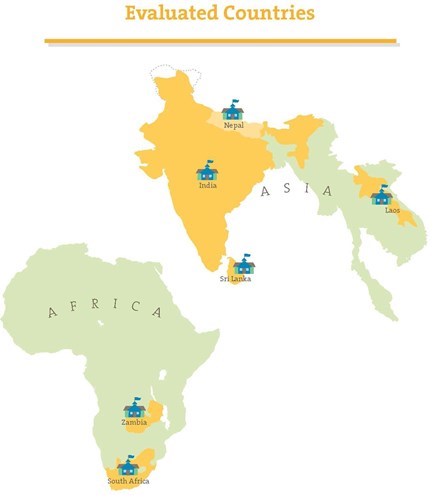
The study examined libraries in Laos, Nepal, India, Sri Lanka, Zambia, and South Africa.
Measuring the impact of thousands of libraries across multiple countries is quite a formidable undertaking, but with support from the Bill and Melinda Gates Foundation, we commissioned an independent, external research team to examine our libraries in Laos, Nepal, India, Sri Lanka, Zambia, and South Africa. To establish a baseline, we began evaluations at the schools before a Room to Read library was established and tracked progress in reading habits over the course of two years.
Across all six countries, the evaluators visited more than 2,400 schools and interviewed more than 20,000 children.
The most exciting takeaway from the study is that we have been able to confirm empirically that our libraries are helping children become independent readers. In India, Laos, Nepal and Sri Lanka, 51 percent of children from schools with a Room to Read library were reading for enjoyment at school — compared to only 29 percent of children from comparison schools without a Room to Read library.
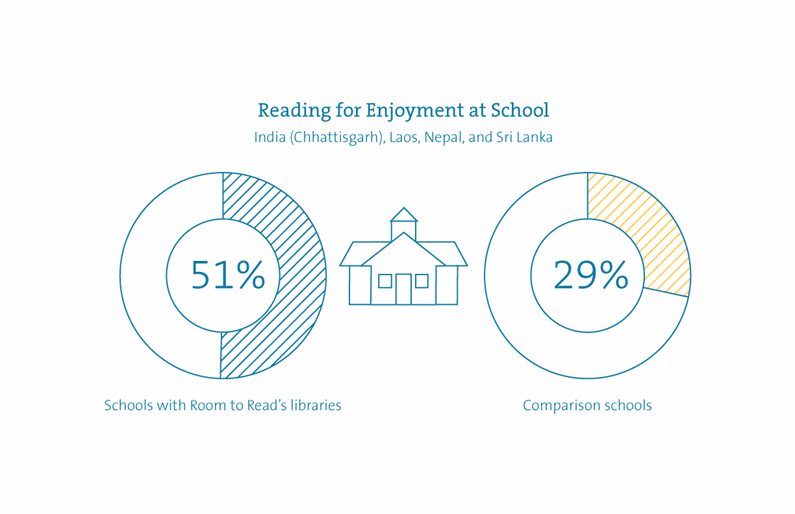
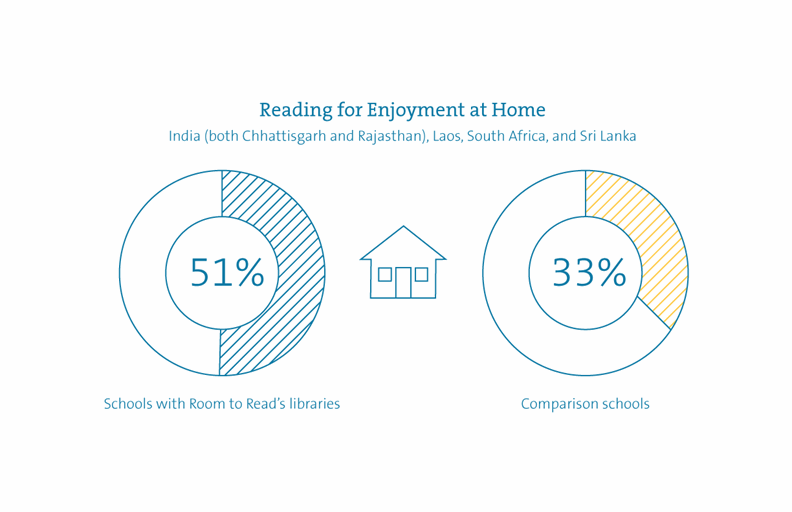
And in India, Laos, South Africa and Sri Lanka, 51 percent of children from project schools were reading for enjoyment at home — compared to 33 percent of children from comparison schools.
The study revealed more nuanced insights as well. For example, in India, examining results on the state level revealed that Chhattisgarh libraries were noticeably outperforming the libraries in Rajasthan. A closer look revealed that training staff within the schools to manage the library instead of training external library managers proved to be far more impactful. Therefore, Room to Read now exclusively uses this more successful method. This finding also highlights that beyond good program design, the specifics of the implementation of that program design can make a big difference in results.
With affirmation and insights like those revealed in this study, we can continue to expand and grow our library programs with the confidence that we are helping millions of children become independent readers.
Download the full report summary and visit Tracking & Results for more information.


